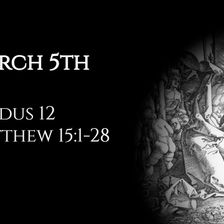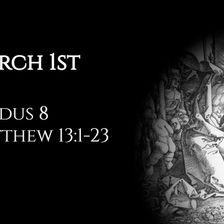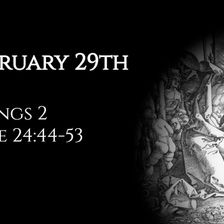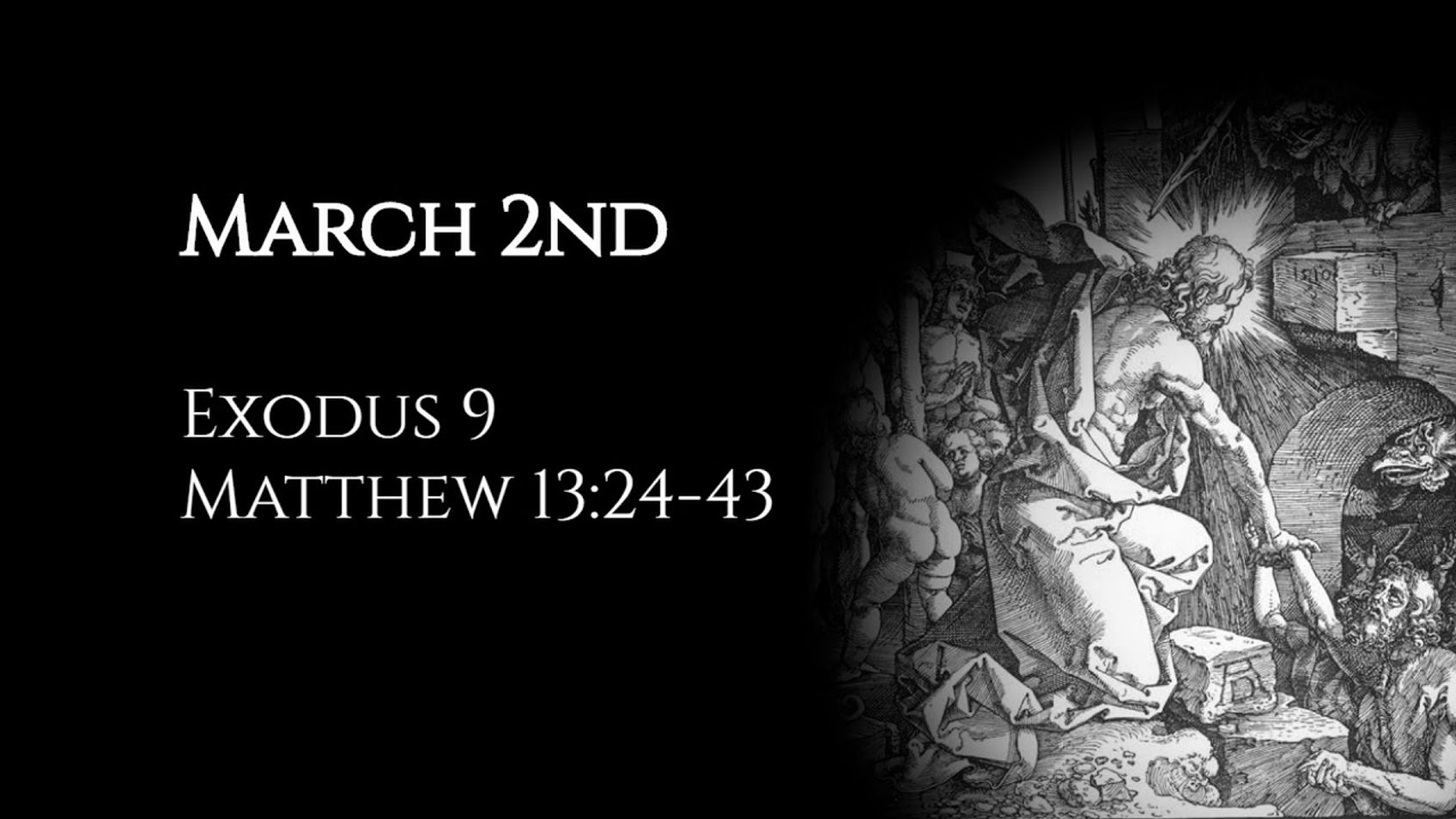March 2nd: Exodus 9 & Matthew 13:24-43

Pestilence, boils, and hail. The Parable of the Wheat and the Weeds.
Leviticus 13 (the plague of leprosy); Deuteronomy 28:27, 35 (the boils of Egypt); Exodus 4:6-8 (the sign of leprosy).
Matthew 9:37-38 (fields white for harvest); Psalm 78 (the psalm Matthew references); Ezekiel 17 (the parable of the eagles and the cedar); Daniel 4:10-12 (Nebuchadnezzar as a tree); Daniel 2:35 (the stone growing to become a mountain that filled the earth).
Reflections upon the readings from the ACNA Book of Common Prayer (http://bcp2019.anglicanchurch.net/).
If you have enjoyed my output, please tell your friends. If you are interested in supporting my videos and podcasts and my research more generally, please consider supporting my work on Patreon (https://www.patreon.com/zugzwanged), using my PayPal account (https://bit.ly/2RLaUcB), or by buying books for my research on Amazon (https://www.amazon.co.uk/hz/wishlist/ls/36WVSWCK4X33O?ref_=wl_share).
The audio of all of my videos is available on my Soundcloud account: https://soundcloud.com/alastairadversaria. You can also listen to the audio of these episodes on iTunes: https://itunes.apple.com/gb/podcast/alastairs-adversaria/id1416351035?mt=2.
More From Alastair Roberts






More on OpenTheo















